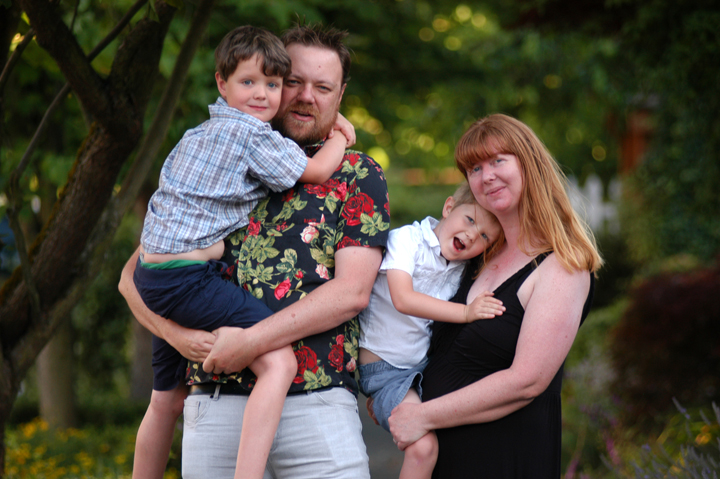People are my favorite subject to shoot, and I loved meeting everyone featured in ParentMap's global families story.
More pictures and Q&As with each family
here. This story was ParentMap's September
cover story!







Just try driving through South Lake Union on a weekday afternoon. Old buildings being torn down, high-rises going in, construction equipment everywhere as the Amazon boom accelerates. Even walking can be difficult, the sidewalks teeming with the badges-on-a-lanyard crowds. Is it any surprise that
Seattle is the fastest growing city in the country?
According to a 2016 Census estimate,
704,352 people call the Emerald City home. That’s up nearly 100,000 people since the last count in 2010, with
some 1,100 people moving to the Seattle metro area every week.
While we may gripe about skyrocketing housing prices and expressways turned into parking lots, this population boom isn’t Seattle’s first. From the Gold Rush at the end of the 1800s, to Boeing in the 1950s and ’60s and Microsoft in the ’90s, new residents have arrived in waves. Now the no. 1 reason to move to Seattle often comes in a cardboard box printed with a smile.
Where are people coming from? According to
a LinkedIn report in June, more workers came to Seattle from San Francisco than anywhere else. That makes sense, trading one tech hub with another. We talked with the Gavhane family from the Bay Area, and several international families lured to Seattle by the tech industry.
Other families are here because the dangerous situations they left back home. For the Ramos family from El Salvador, it was the gang violence. For the Musawi and Al Helli family from Iraq, it was the price of working for the U.S. military.
Moving here comes at a cost, especially for those arriving from abroad. It means leaving their friends and families, setting up the kids in new schools, navigating a new language and lifestyle.
Our newest neighbors are arriving at a time when anti-immigration rhetoric is as loud as ever, and coming directly from the Executive Office. Throughout the 2016 presidential campaign, the candidate who is now our president called for building a wall along the U.S. border with Mexico and ramping up deportations. In January, he tried to ban travel from seven Muslim-majority countries (an executive order the U.S. Supreme Court is, as of publishing, partiality allowing before it considers the U.S. government’s case in October).
In this decidedly blue corner of the country, resisting the president is often seen as a badge of honor. But for the recently arrived Seattleites we talked to, their main concerns are centered around daily life, not politics: filling out paperwork, building a new network and helping their kids pick up English.






 Just try driving through South Lake Union on a weekday afternoon. Old buildings being torn down, high-rises going in, construction equipment everywhere as the Amazon boom accelerates. Even walking can be difficult, the sidewalks teeming with the badges-on-a-lanyard crowds. Is it any surprise that Seattle is the fastest growing city in the country?
According to a 2016 Census estimate, 704,352 people call the Emerald City home. That’s up nearly 100,000 people since the last count in 2010, with some 1,100 people moving to the Seattle metro area every week.
While we may gripe about skyrocketing housing prices and expressways turned into parking lots, this population boom isn’t Seattle’s first. From the Gold Rush at the end of the 1800s, to Boeing in the 1950s and ’60s and Microsoft in the ’90s, new residents have arrived in waves. Now the no. 1 reason to move to Seattle often comes in a cardboard box printed with a smile.
Where are people coming from? According to a LinkedIn report in June, more workers came to Seattle from San Francisco than anywhere else. That makes sense, trading one tech hub with another. We talked with the Gavhane family from the Bay Area, and several international families lured to Seattle by the tech industry.
Other families are here because the dangerous situations they left back home. For the Ramos family from El Salvador, it was the gang violence. For the Musawi and Al Helli family from Iraq, it was the price of working for the U.S. military.
Moving here comes at a cost, especially for those arriving from abroad. It means leaving their friends and families, setting up the kids in new schools, navigating a new language and lifestyle.
Our newest neighbors are arriving at a time when anti-immigration rhetoric is as loud as ever, and coming directly from the Executive Office. Throughout the 2016 presidential campaign, the candidate who is now our president called for building a wall along the U.S. border with Mexico and ramping up deportations. In January, he tried to ban travel from seven Muslim-majority countries (an executive order the U.S. Supreme Court is, as of publishing, partiality allowing before it considers the U.S. government’s case in October).
In this decidedly blue corner of the country, resisting the president is often seen as a badge of honor. But for the recently arrived Seattleites we talked to, their main concerns are centered around daily life, not politics: filling out paperwork, building a new network and helping their kids pick up English.
Just try driving through South Lake Union on a weekday afternoon. Old buildings being torn down, high-rises going in, construction equipment everywhere as the Amazon boom accelerates. Even walking can be difficult, the sidewalks teeming with the badges-on-a-lanyard crowds. Is it any surprise that Seattle is the fastest growing city in the country?
According to a 2016 Census estimate, 704,352 people call the Emerald City home. That’s up nearly 100,000 people since the last count in 2010, with some 1,100 people moving to the Seattle metro area every week.
While we may gripe about skyrocketing housing prices and expressways turned into parking lots, this population boom isn’t Seattle’s first. From the Gold Rush at the end of the 1800s, to Boeing in the 1950s and ’60s and Microsoft in the ’90s, new residents have arrived in waves. Now the no. 1 reason to move to Seattle often comes in a cardboard box printed with a smile.
Where are people coming from? According to a LinkedIn report in June, more workers came to Seattle from San Francisco than anywhere else. That makes sense, trading one tech hub with another. We talked with the Gavhane family from the Bay Area, and several international families lured to Seattle by the tech industry.
Other families are here because the dangerous situations they left back home. For the Ramos family from El Salvador, it was the gang violence. For the Musawi and Al Helli family from Iraq, it was the price of working for the U.S. military.
Moving here comes at a cost, especially for those arriving from abroad. It means leaving their friends and families, setting up the kids in new schools, navigating a new language and lifestyle.
Our newest neighbors are arriving at a time when anti-immigration rhetoric is as loud as ever, and coming directly from the Executive Office. Throughout the 2016 presidential campaign, the candidate who is now our president called for building a wall along the U.S. border with Mexico and ramping up deportations. In January, he tried to ban travel from seven Muslim-majority countries (an executive order the U.S. Supreme Court is, as of publishing, partiality allowing before it considers the U.S. government’s case in October).
In this decidedly blue corner of the country, resisting the president is often seen as a badge of honor. But for the recently arrived Seattleites we talked to, their main concerns are centered around daily life, not politics: filling out paperwork, building a new network and helping their kids pick up English. 